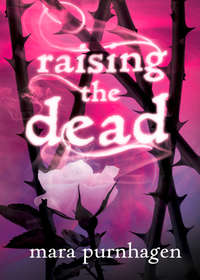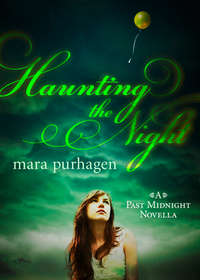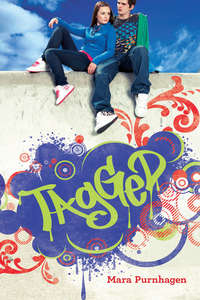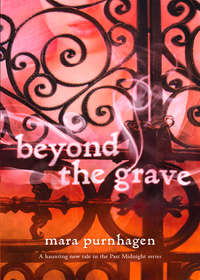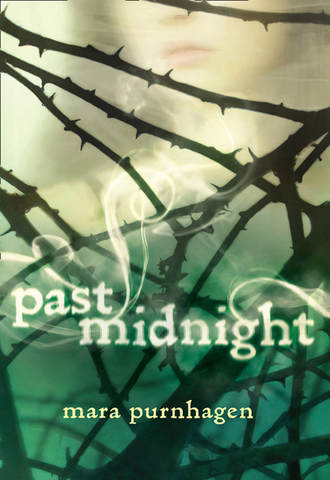
Полная версия
Past Midnight
“Where are you guys going after this?” she asked me one afternoon. We’d stopped at a little park to enjoy a picnic lunch. I was sitting against the trunk of a huge tree, eating pasta salad out of a paper bowl. Annalise was sitting cross-legged in the grass and poking at a Cobb salad with her plastic fork.
“No idea. They’d better figure it out soon, though. I need to register for school.”
“You’ll be a senior,” Annalise said softly. “Wow. That’s kind of hard to imagine.” She fastened a foil lid on her bowl and set it inside the beach bag we’d brought. “How many high schools have you been to?”
I did a quick calculation. “Five? No—six. I guess Florida doesn’t really count, though, because I was only there for a few weeks.”
Annalise shook her head. “You know, it’s not fair. To you, I mean. You should be able to stay in one place for more than a single semester.”
I sighed. “That would be nice.”
I had learned how to leave a place behind without leaving a piece of myself along with it, but more important, I had taught myself how to be detached. I never joined teams or clubs, and I doubted my picture appeared in a single yearbook. I was, in a way, a ghost: no one could prove I had ever existed once I physically left a location.
“You should say something,” Annalise said. “I mean, aren’t you tired of Mom and Dad dictating your life?”
“Why didn’t you ever say something? You’ve been to more schools than I have.”
“Honestly? It never even occurred to me that I had a choice.”
“But you think I do?” I wasn’t sure what my sister thought I could accomplish. Did she want me to pick a fight with our parents? Did she want all of us to move permanently to Charleston?
“I think that if we approached them together, we could change things.”
“Change what things?” I wasn’t sure I wanted to join Annalise’s revolution. Things were fine. Not perfect, but fine. I could live with that.
“It’s time we had a voice,” Annalise said. “Whatever Mom and Dad want, they get. If they want to move across the country, they do. If they want you to stand in the middle of a room and allow negative energy to hurt you…” She didn’t finish her sentence.
“What really happened?” I finally asked. She was plucking grass from the ground.
“I don’t know, Charlotte. I really don’t. But I don’t want to feel that way ever again.”
“What way?”
“I just felt this sadness. This terrible, awful sadness, and it seemed to come from inside me and fill me up until I could hardly breathe.”
I watched my sister for a while. She was staring at the grass, slowly running her fingers over it. I wanted to help her get over the experience, and there was only one way I knew how to do that.
“You have to go back,” I said.
“I was afraid you were going to say that.”
“If you don’t face it—whatever it is—it’ll bother you. And you can’t escape it, exactly, because you live here now. What if your friends decide to go to the Courtyard Café for lunch one day? You can’t avoid this. Not forever.”
“I know,” Annalise said softly.
“We can go in the daytime, with the entire crew and everything, so you won’t be alone.”
“That didn’t help me before.”
“I’ll be with you, too. I’ll stand right next to you and I won’t leave no matter what.”
“I know you won’t, Charlotte. But you didn’t feel what I did. You’re not afraid because you don’t think anything’s really going to happen.”
She had me there. Annalise was the sensitive one in the family, a sponge soaking up other people’s emotions. I was more like a slab of concrete. I believed she’d felt something, but I didn’t think it was anything more than random energy. If she went back, maybe she’d realize that and she could stop feeling so frightened.
We sat in silence for a few more minutes. I knew she was coming to a decision and that I shouldn’t push her. I looked around at the park where we were sitting and realized that we were just a block from the Courtyard Café. Horse-drawn carriages clopped steadily down the road while happy tourists snapped pictures and peered into the windows of specialty shops. Everything in Charleston felt so old, as if it was stained with history. I rested my head against the tree and wondered how long it had stood there. More than a century, I guessed. Its trunk was huge, and its thick branches curled up toward the sky.
Finally, Annalise looked at me. “You really think I should do this?”
“I do.”
She stood up. “Okay, then. Let’s get it over with.”
Our parents were thrilled that Annalise had reconsidered, but revisiting the café proved to be difficult. Mrs. Paul, the restaurant’s owner, had seen a surge in customers after my parents appeared on the local news and proclaimed the Courtyard Café “one of the most haunted locations in the city.” We had to schedule a time when business was likely to be slower so we could close off the side room and not affect the dinner rush.
Two weeks later, right after the Fourth of July, we returned. Our visit was supposed to be short—less than an hour, Mrs. Paul declared—and we couldn’t move any of the furniture. Dad grumbled that they’d done a lot for the business and this wasn’t the way to be thanked, but Annalise was relieved—no matter what, the whole thing would be over and done with soon.
“Ready?” I asked her. We were sitting at a small table in the main room as the crew set up their equipment.
Annalise nodded. “Yeah. I mean, you can’t ever be ready when you don’t know what’s about to happen, but I’m as ready as I can be.”
We were wearing black T-shirts and khaki pants like everyone else. I’d grabbed my sister’s pink sweater as we were heading out, just in case she got cold, and tied it around my waist as we walked into the side room. Both cameras were focused on us as Annalise and I weaved around the tables and made our way to the center of the room. I took hold of my sister’s hand and squeezed. She smiled at me then began to speak out loud.
“Hello. My name is Annalise and I’d like to know if anyone is here with us today? If there’s someone here, could you give us a sign?”
The room began to feel cooler to me, and I almost let go of my sister’s hand so I could put on the sweater, but she was holding on to me tightly and I didn’t want to pull away from her.
“How are the readings?” Mom whispered to someone.
“Normal so far.”
“Keep talking,” Dad directed.
Annalise took a deep breath. “Hello? Do you remember me? I was here a few weeks ago. I felt—something. Was it you? Is someone here?”
Nothing happened. Twenty minutes passed, and all the readings remained the same. I could tell my sister was feeling calmer because she began to loosen her grip on my hand. Maybe she thought her first encounter had been a fluke, a surge of energy that had nothing to do with her presence.
“See?” I whispered. “This isn’t so bad.”
I felt an icy breeze against my cheek and wondered if the air-conditioning had kicked on. I let go of Annalise and quickly slipped her sweater over my head.
“Charlotte.” Annalise’s voice was strained. “It’s happening again.”
“We’re getting something!” Dad announced.
I grabbed my sister’s hand. “I’m right here,” I said. “Not going anywhere.” Annalise nodded, but her face was frozen with panic. I decided to do the talking for her.
“Whoever you are, we mean no harm,” I said loudly. “What do you want?”
I paused. Mom was holding a digital recorder to catch EVPs, and she nodded at me. I asked a few more questions, but as I did I was aware of two things. First, my sister looked pale and her hand was shaking. Second, something felt weird to me, as if the air had gotten heavier or somehow thicker. I didn’t see anything strange, but I felt absolutely certain something was standing in front of us. It seemed to move closer, and I could feel a breath of frozen air against my cheek. Annalise whimpered.
“That’s it,” I declared. “We’re done.”
I pulled my sister with me, guiding her around the tables and chairs and various crew members. I didn’t stop until we were standing on the front porch of the restaurant, where the frozen feeling from inside instantly melted away in the muggy evening air.
Annalise slumped onto the porch steps and immediately began to cry. “Did you feel it, too?” she asked. “Did you feel how awful it was?”
“I felt something,” I admitted. “But it wasn’t horrible. It was just—unusual, I guess.”
Our parents came outside, and I was surprised to see that they were both smiling. “Great job, girls,” Dad said. “I can’t wait to listen to the EVPs from this one.”
“The ion meter was all over the place,” Mom added. “Highest numbers we’ve had so far.”
“How wonderful for you,” Annalise said bitterly.
Dad looked confused. “Are you okay?”
Annalise stood up. “No, I am not okay,” she said, her voice loud. “You dragged me into something terrible and you don’t even care. Well, I’m through. I’m never doing this again! Ever!” She stormed off before my parents could respond.
“What on earth was that all about?” Mom asked me.
I didn’t have an answer. I’d never seen my sister react so furiously to one of my parents’ sessions. I didn’t know what was happening, but I had the uneasy sense that whatever it was had just begun.
three
When I was eight, we lived in a house where you could hear the steady squeaking of a rocking chair nearly every night, even though we didn’t own a rocking chair. When I was ten, we lived in a house where the TV changed channels on its own so often that it was useless to sit down to try and watch something. And when I was thirteen, we lived in a house where you could hear violin music drifting up like smoke from the empty basement. I lived in all these places, and none of them truly scared me, although it could feel creepy at times. I would get ready to take a shower and then pause, wondering if something was watching me undress.
Mom and Dad were drawn to these places. The older, the better, and they often rented a house without having ever stepped inside. And although they constantly reassured us that it was all just random energy and nothing that could really hurt us, my sister and I longed for a new house, something completely devoid of history or rumors or sudden, unexplained deaths.
That’s why, when Dad pulled the moving van into the driveway of 1227 Copper Court that August, I had to restrain myself from yelling with joy. It was everything I’d always wanted in a house, right down to the beige aluminum siding.
“We’re home.” Mom sighed. She was less than thrilled and had spent the two-hour drive from Charleston reminiscing about all of the other places we’d lived and how none of them had been less than a hundred years old. I’d spent the drive trying to tune out her stories and take a nap. I must have slept for a little while because I remembered dreaming about a dark-haired girl reading a book. She was wearing a long, old-fashioned dress as she sat against a tree, and I had the distinct impression that it was the same tree where Annalise and I had eaten lunch a month before. It was just a brief vision, but the image of the girl slowly turning the pages of her book stayed in my head until we arrived at our new house.
Both Mom and Dad sat in the van staring at the place we’d call home for the next ten months. It was so new the front yard hadn’t been seeded yet. We’d be the first people to live in it. That thought alone made me smile.
“Who’s got the keys?” I asked from the backseat. I couldn’t wait to look around and claim my bedroom.
I nearly skipped to the front door while my parents slowly followed. Dad tossed me the keys and I stepped inside. Sunlight poured in from the bare windows.
“Smells like new carpet,” I said happily.
“Smells like cheap carpet,” Dad grumbled behind me.
Mom looked around at the taupe walls and white trim and brown doors. “This place has absolutely no personality,” she announced. “I bet the interior of every house on this street looks exactly the same.”
“That would make sense,” Dad said. “All of the exteriors look exactly the same.”
I wasn’t going to allow their sour mood to affect my jubilant one. I ran upstairs, peeking into each of the three bedrooms until I decided on a room overlooking the backyard. It was smaller than the master, but it had more windows and a decent closet. I sat on the pristine carpet, leaned back on my arms and closed my eyes. This would be my room for at least one full school year. I couldn’t believe my luck—or Annalise’s ultimatum.
After her second experience at the Courtyard Café, Annalise retreated to her campus apartment and refused to speak to our parents for a few days. They seemed upset by her reaction, but they were too busy examining video footage and planning their next investigation to really do anything about it. They weren’t prepared when Annalise showed up at their hotel room demanding a family meeting.
“Family meetings” were rare for us. Usually it meant my parents were going to announce the next city we’d be living in. My dad tried to take control right away.
“I know we need to discuss certain things,” he began, “but I’d like to set a few ground rules first.”
Annalise stopped him. “I have only one ground rule. You need to listen to me without interrupting for five minutes. Then you can say whatever you want.”
My sister had never been so assertive. She meant business, and my parents knew it. They nodded and Annalise took a deep breath. She told them that she had always participated in their projects enthusiastically, but she would no longer do so unless they agreed to a few new conditions.
“What kind of conditions?” Mom asked warily.
Annalise reminded her of the five-minute rule, and Mom pretended to zip her mouth shut and throw away the key.
“First, I’m taking a year off from helping with any of your research.”
Out of the corner of my eye, I saw Dad stiffen. I had overheard enough conversations during the past few days to know that he wanted to focus completely on the findings from the Courtyard Café, which had produced readings beyond their expectations. Instead of compiling all of the Charleston locations into one television special, he planned to dedicate a full hour just to the restaurant—and Annalise. He wanted to go back, and he needed her to go with him.
“Second, I will return to that place only in my own time, when I feel that I’m ready.” Annalise looked directly at Dad when she said this. He sighed.
“Third, I want the three of you to stay in one place this year. Same town, same house, same school for Charlotte.”
I don’t know who was more surprised by the third condition: me or my parents. Annalise and I hadn’t discussed “changing things” since our conversation in Charleston, which I thought was merely my sister venting. I honestly didn’t think she would take action.
Before anyone could respond to her request, Annalise held up her hand.
“I know that may sound strange. But I have my reasons, if you’ll just hear me out.”
She went on to explain that college had proved to her how important it was to have some stability in her life. She had loved traveling when we were kids, but part of her always wanted to stay in one place longer, to make friends and join teams and just generally be a part of something.
“You were part of something,” Dad protested. “You were a part of our crew.”
“Are you saying we’ve been terrible parents?” asked Mom, her brow furrowed with worry.
“I’m saying that I want Charlotte to have a chance at something a little more normal.” She smiled at me. “And no, I don’t think you’re terrible parents.”
Mom and Dad were obviously perplexed. Dad said he had always thought traveling was the best education you could get.
Mom turned to me. “Is this what you want, Charlotte? Are you unhappy?”
It was strange how quickly the conversation had turned. I fidgeted nervously.
“It would be really nice if we could stay somewhere for a year,” I said. “I think I’d like that.”
Over the next few days, my parents seemed to forget about their research as they tried to come up with a plan that would make us all happy. They found a small town about two hours north of Charleston with a good school system. They planned trips to nearby cities with locations they could easily drive to. All that was left was to buy a house. That’s when I stepped in.
“I have one condition of my own,” I told them. They were looking up homes for sale online, and every picture on the screen showed some kind of dark Victorian. They weren’t thrilled when I told them I wanted to live in a new house, but in the end, they agreed.
“We’re doing this for you,” Dad said with a shrug. “Might as well go all the way.”
Mom smiled. “We’re doing this for all of us,” she said, touching Dad’s hand. “We want everyone on our team to be happy.”
That was how I ended up sitting on the clean, brand-new floor of my clean, brand-new bedroom at the beginning of August. I was enjoying the empty space and the sun on my face when Mom came upstairs.
“I see you’ve claimed a room,” she said, sitting down next to me.
“Isn’t it perfect?” I asked. “I’ve always wanted something like this.”
“Well, I’m glad. This house may not have much personality, but it certainly has a lot of light.”
“I could sunbathe right here,” I joked.
Mom patted my knee. “Enjoy. Then come downstairs. We have a lot of unpacking to do.”
I groaned. Unpacking was the worst part about moving, especially since my parents always insisted we do it ourselves. They didn’t trust anyone with their expensive equipment. Instead of putting it off, I decided to get the hard labor over with and followed Mom downstairs. Outside, Dad was surveying the open back of the moving truck.
“Do we have more stuff than before, or does it just seem that way?” he asked.
“Just seems that way,” I said. “Hand me a box.”
Over the next few hours I made a thousand trips up and down the stairs. My legs were feeling sore and I was ready for a break. I was happy, though, that my room now held a bed and a dresser, as well as a dozen different cardboard boxes marked with my name. I noticed one of the boxes was smaller than the others and was labeled in my sister’s handwriting. I knelt down next to it and peeled off the thin brown packing tape. On top of everything was a single sheet of notebook paper.
Dear Charlotte,
I hope you’re having fun settling into the new house (ha ha—I know how much you love to unpack). I just wanted to let you know how great it was to spend the summer with you. I’ve enclosed some things I thought you might need this year. Have a great time at school, and see you soon!
Love, Annalise.
I folded the note in half and smiled. It had been difficult leaving Annalise behind in Charleston. I had given her a wordless hug before getting into the car, but I refused to look out the window as she waved us off. Even though this would be her second year away at college, I still had not gotten used to the emptiness that came with her absence from my daily life. And now, after having spent the summer with her, I knew it would take me a while to readjust.
I sifted through the box and found a new alarm clock, some notebooks, a pack of multicolored pens and, at the very bottom, Annalise’s pink sweater. I lifted it out and held it for a moment.
“Charlotte! We need your help!” Mom called from downstairs.
“Coming!” I yelled back.
“Charlotte.”
I spun around. It sounded like Mom had whispered my name from right behind me, but no one was there.
“I need something to eat,” I mumbled. My stomach was obviously impairing my brain. I set Annalise’s sweater on top of the nearest box.
“There’s no residual energy in a new house,” I said out loud. I waited, as if I might get a response. Nothing. I turned and went downstairs.
“Oh, good.” Mom motioned me over to the truck. “I don’t need to remind you to be careful with this,” she said as she gingerly placed a TV monitor in my arms.
“Living room?” I asked, drooping under the weight of the monitor.
“Next to the others,” Mom confirmed.
We never really had a living room in any of our houses. My parents converted the largest room of each home into their office, which meant pushing long tables against the walls and filling every square inch with equipment and computers. The dining room held the sofa and TV, and we ate our meals in the kitchen.
After all of the equipment had been safely stored in the living room/office, I returned to the truck, determined to get everything cleared out before dinner. As I was pulling out a floor lamp from the back of the truck, I spotted a girl about my age standing across the street. My first thought was to wonder how she had managed to put a guinea pig on a leash, but when I looked more closely I saw that she was walking a very tiny dog. She waved, so I set the lamp down on the sidewalk and crossed the empty street to say hi.
“Moving in?” she asked. Her microscopic dog began to bark wildly. It was more of a high-pitched squeak, a sound like something a rabid mouse would make.
“Yeah. Hi, I’m Charlotte.”
“I’m Avery. And this—” she motioned to her pet “—this is Dante. Shh, Dante.”
“What kind of dog is he?”
“A very naughty one. Dante!” She smiled at me apologetically. “He’s normally friendly. And quiet.” She scooped him up and cradled him in her arms. He stopped barking, but his eyes remained on me. I’d never seen a dog so protective of its owner.
“So, where are you moving from?” Avery asked. Her light brown hair was pulled into a ponytail and she wore a blue T-shirt with “Vikings” across the front.
“We just came from Charleston,” I said.
“Oh! I have friends who go to college down there.”
“My sister goes to school there! I wonder if she knows any of them?”
Avery nodded. “Maybe. It’s a small school.” She looked around. “Just like this is a small town. In fact, nearly half of last year’s senior class is going to Charleston.” She frowned as if she’d remembered something, then changed the subject.
We chatted for a while. She pointed out her house at the bottom of the hill and we talked about school, where we would both be seniors.
“Do you play any sports?” she asked.
“No. You?”
Avery pointed to her T-shirt. “I’m a cheerleader. Go Vikings.”
I smiled. “Is this a big sports town?”
“Kind of. Our football team’s good. They went to State last year. Although this year…” Her voice trailed off and she looked down at Dante, who was keeping up a low growl as he stared at me.
“So where’s the best place for pizza around here?” I asked, deciding to change the subject this time. “My parents said I could pick dinner tonight.”
“That’s easy. There’s this little place downtown called Giuseppe’s. Best pizza around, I swear.”
“Do they deliver?” After a long day of unpacking, I was craving a hot slice of pizza with pepperoni and extra cheese.
“No, but I’ll go with you to pick it up,” Avery offered. “I have a car.”
I was thrilled. Not only was Avery nice, but she lived right on my street and had her own car. If we became friends, we could drive to school together and I wouldn’t be forced to ride the dreaded bus. My parents owned two vehicles: a silver BMW that I wasn’t allowed to go near, and a large black van with the word “Doubt” painted across the side in tall silver letters. I couldn’t imagine pulling up to school in the van, so it was either catch a ride with someone or endure the school bus.
We agreed to meet an hour later. Dante squirmed in Avery’s arms as she walked home, growling and trying to get one final, fierce look at me.
“I don’t like that dog,” I muttered. As soon as I said it, I felt a sharp, cold breeze against my face. It lasted only half a second, but it was so intense I put a hand to my cheek. Then Dad hollered at me to get the lamp off the sidewalk and into the house.


